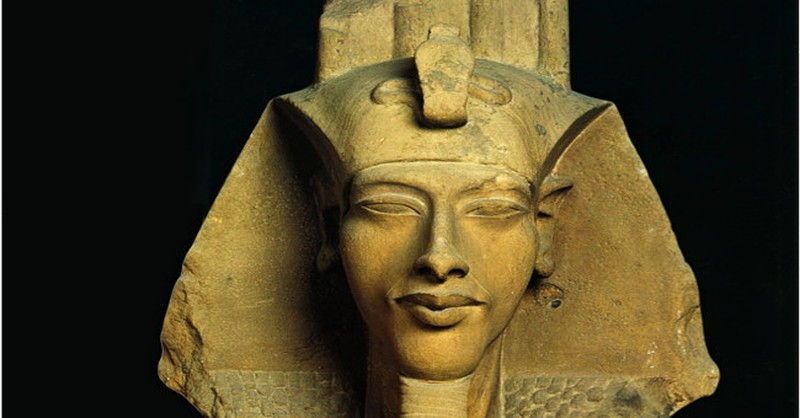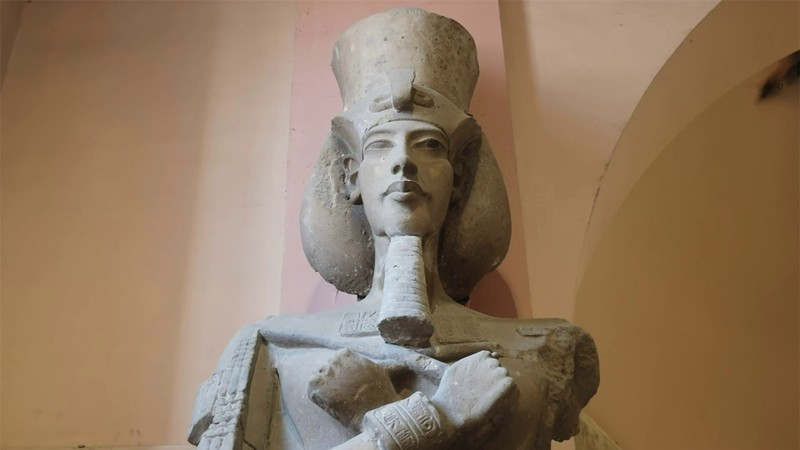Akhenaten
Akhenaten is the tenth ruler of the Eighteenth Dynasty. He was referred to as Amenhotep IV before the fifth year of his rule, which means "Amun is satisfied."
As a king, Akhenaten is renowned for adopting atenism, or worship focused around Aten, in place of Egypt's long-standing polytheism. Egyptologists have varying opinions on whether the country's religious practices were wholly monotheistic, monolatric, syncretistic, or henotheistic. After his passing, this cultural shift away from conventional religion was reversed. His sculptures were demolished, his monuments disassembled, and his name omitted from lists of kings made by later pharaohs. Under his near successor Tutankhamun, who changed his name from Tutankhaten early in his reign, traditional religious practice was gradually reestablished. When, a dozen years later, monarchs from the Eighteenth Dynasty established a new dynasty without defined succession rights, they discredited Akhenaten and his immediate successors and referred to Akhenaten in archival documents as "the adversary" or "the criminal."
Before Amarna, or Akhetaten, the new capital city he constructed for the worship of Aten, was discovered in the late 19th century, Akhenaten was all but forgotten by history. Additionally, Edward R. Ayrton discovered a mummy from the tomb KV55 in the Valley of the Kings in 1907 that might belong to Akhenaten. The identity of the man buried in KV55 as Akhenaten has since been called into question, despite genetic tests having established that he was Tutankhamun's father.
(1372 BC – 1336 BC)







